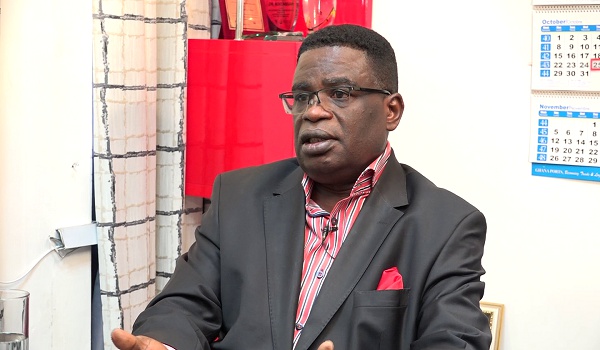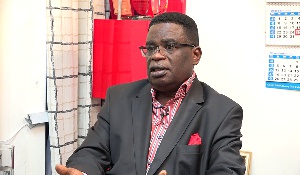
[ad_1]
 Kofi Mbiah, former CEO of the Ghana Shippers’ Authority
Kofi Mbiah, former CEO of the Ghana Shippers’ Authority
Maritime industry experts have called for the development of a robust maritime industry for efficient trade within the single continental market.
Africa has opened up to free trade since the start of 2021 with the introduction of the African Continental Free Trade Area, but experts believe there is still much to be desired in terms of countries preparing for it. trade effectively within the single continental market. .
Speaking on Eye on Port, maritime law consultant and lawyer at Alliance Partners, Dr Kofi Mbiah, said development should be done in infrastructure, implementation of appropriate legal frameworks and trade standards.
Dr Mbiah, who is also the former CEO of the Ghana Shippers’ Authority, said transport infrastructure in African countries is weak.
He said that since trade is inextricably linked with transport, the inability to invest and develop transport systems in the hinterland will make the development of port infrastructure futile.
“Transport connectivity in most sub-Saharan ports is poor. Go to Apapa Port in Lagos, for example, there is a serious traffic jam – about 5-10 km of trucks lined up in a queue. You can’t build the AfCFTA on that, ”Dr Mbiah said.
Dr Mbiah also lamented the cost of transport in Africa compared to Europe and Asia, which makes doing business on the continent expensive.
“Today in Europe and most developed countries the cost of transport is around 5%. In Africa, however, it accounts for around 15-20% of the total cost of trade, and for landlocked countries it rises to 30%. There’s no way to have a very effective AfCFTA with those kinds of numbers. “
He said it is fundamental to provide enough education on rules of origin as well as to ensure strict enforcement in the trade of the AfCFTA.
The industry guru also suggested that internal tax collection mechanisms should be strengthened in order to ease the tax burden on ports, in order to facilitate maritime trade.
“I advocated that this system where we focus on collecting port revenue through a certain tax regime, we must start to move away from it, strengthen the mechanisms for collecting internal taxes. For example, cigarettes, beer, etc. these are the things we will be focusing on when it comes to Port rights. You let the companies work and we take our taxes on the companies, ”he said.
In turn, the Executive Director of the Institute for African Maritime Development, Chief Obosu Mohammed, added his voice to calls for improved intermodal connectivity between African countries.
Chief Obosu Mohammed said, “You have to agree with me when I say that transport is going to drive this AfCFTA, so we have to weigh the different modes and invest in the most efficient. “
He addressed the issue of creating national or regional shipping lines to meet trade volumes in a cost-effective manner.
“There is a lack of investment in our maritime sectors. We need to develop policies that would allow the private sector to diversify into shipping companies, as well as ship repair centers in strategic areas, ”Mohammed said.
The executive director of the African Maritime Development Institute also called for increased political will on a common currency for Africa to help trade.
Legal expert Dr. Mbiah said there must be regional strategic policies that converge with national policies.
He called for structured competition within regional blocs that would take advantage of certain areas of strength for trade.
“The countries of the bloc should discuss and ask where each has a competitive advantage, and focus on investments in these competitive areas so that there is ultimately a structured competition between the countries,” said the maritime expert.
He said that although Ghana’s digitization agenda is relatively high, there needs to be more focus on building digital systems across the continent.
Source link